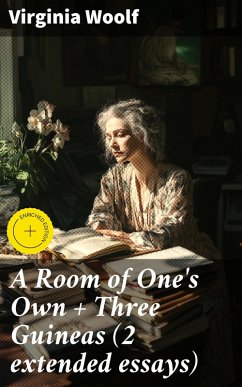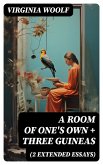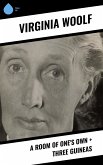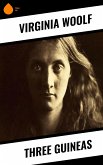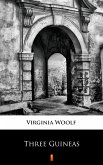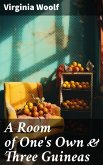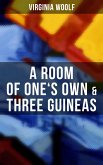In her seminal essays, "A Room of One's Own" and "Three Guineas," Virginia Woolf articulates the profound relationship between women and literature, framing her arguments within the broader context of early 20th-century feminism. Woolf employs a stream-of-consciousness style, intertwining personal narrative with socio-political commentary, to elucidate the necessity of financial independence and intellectual freedom for women writers. This work not only critiques the patriarchal structures that have historically suppressed women's contributions to literature but also encourages a reimagining of femininity in artistic expression, making it a foundational text in feminist literary criticism. Virginia Woolf, a key figure of the modernist movement, was deeply influenced by her own experiences as a woman in an era rife with gender disparities. Her roles in the Bloomsbury Group and her engagement in social and political discourse provided her with insights into the systemic obstacles faced by women. This backdrop, combined with her own struggles as a writer, fueled her advocacy for women's rights and inspired this pivotal exploration of creativity and gender. "A Room of One's Own" and "Three Guineas" are essential readings for anyone interested in feminist literature, gender studies, or the evolution of modernist thought. Woolf's eloquent prose and incisive arguments compel readers to reflect on the societal constraints that inhibit artistic expression, making this collection a transformative experience. In this enriched edition, we have carefully created added value for your reading experience: - A comprehensive Introduction outlines these selected works' unifying features, themes, or stylistic evolutions. - The Author Biography highlights personal milestones and literary influences that shape the entire body of writing. - A Historical Context section situates the works in their broader era-social currents, cultural trends, and key events that underpin their creation. - A concise Synopsis (Selection) offers an accessible overview of the included texts, helping readers navigate plotlines and main ideas without revealing critical twists. - A unified Analysis examines recurring motifs and stylistic hallmarks across the collection, tying the stories together while spotlighting the different work's strengths. - Reflection questions inspire deeper contemplation of the author's overarching message, inviting readers to draw connections among different texts and relate them to modern contexts. - Lastly, our hand-picked Memorable Quotes distill pivotal lines and turning points, serving as touchstones for the collection's central themes.
Dieser Download kann aus rechtlichen Gründen nur mit Rechnungsadresse in A, B, BG, CY, CZ, D, DK, EW, FIN, F, GR, H, IRL, I, LT, L, LR, M, NL, PL, P, R, S, SLO, SK ausgeliefert werden.

